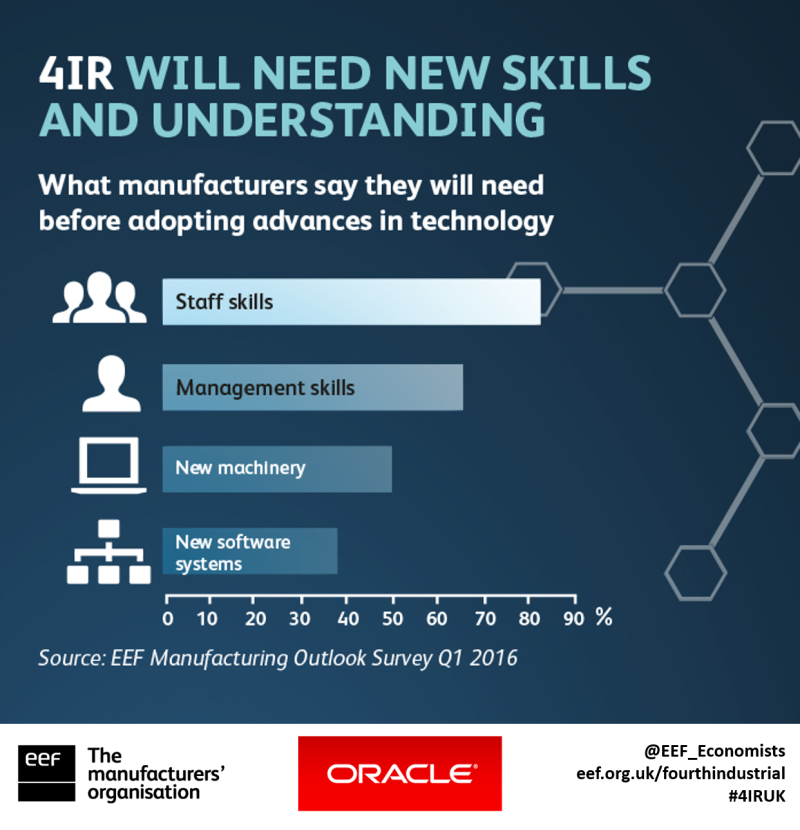 In recent months the pace surrounding 4IR has increased and become a major talking point within the manufacturing sector. The speed at which this change is predicted to take place is rapid, with 80% of manufacturers saying that the revolution will be a business reality by 2025, according to research[1] by EEF, the manufacturers’ organisation. By Simon Roberts, Associate Director of Interim Management at Jonathan Lee Recruitment
In recent months the pace surrounding 4IR has increased and become a major talking point within the manufacturing sector. The speed at which this change is predicted to take place is rapid, with 80% of manufacturers saying that the revolution will be a business reality by 2025, according to research[1] by EEF, the manufacturers’ organisation. By Simon Roberts, Associate Director of Interim Management at Jonathan Lee Recruitment
There is no doubt that 4IR is going to happen, but the speed of change and the implementation of new disruptive technologies is a real challenge amongst business leaders. There is fear that the UK will fall behind the other major industrial powerhouses due to a lack of clarity and substance around a viable UK industrial strategy. Thankfully, industrial strategies appear to be back on the government agenda with Theresa May’s speech at the CBI annual conference committing to improving the productivity of the UK’s economy, but at a time of major global uncertainty; economic, political, and institutional changes and Brexit, it could mean slow progress at a critical time.
According to a report by the manufacturers’ organisation, EEF, the transformation of the manufacturing industry in 2017 and beyond will depend greatly on a shift towards digital technologies and manufacturers are aware it would make them more productive. In fact 62% of firms state they plan to invest in new modern connected plant over the next five years.
This throws up a real problem to manufacturers who are already suffering with major skill shortages in key areas. In particular, many firms do not have the skillset in-house or the experience to implement digital technologies. Indeed this type of business change is the typical scenario where interim expertise can help guide an organisation in its next phase of business growth.
Businesses are increasingly looking to interim specialists to guide them through the required changes to keep up with 4IR. This change will impact all areas of business including software systems, machinery and connectivity. One thing is clear – the ability to collect vast amounts of data and use this to make informed business decisions will become critical.
These are truly challenging but exciting times. 4IR presents an opportunity for UK Manufacturing to demonstrate its ability to innovate and embrace new technology, but the competition has never been as fierce or as global. Does UK PLC have the technical expertise to capitalise on this opportunity?
We’ve seen a trend in organisations turning to interims who have the technical knowledge and experience to help transition businesses toward digital technology. Jonathan Lee Interim Management has seen recent successes in areas such as automation and business transformation where interim specialists have demonstrated their ability to respond and help companies succeed in the 4IR environment.
Looking to the year ahead, interims will play a vital role in preparing Britain for the transition in 4IR and it’s imperative that organisations start planning now for this change.

